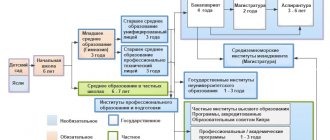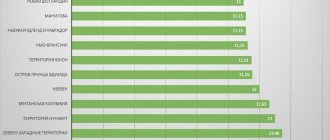Study abroad Education systems abroad Education system in Israel
- Types of education in Israel
- Educational degrees in Israel
- Video about the education system in Israel
- Preschool education
- Features of school education
- Repatriates
- Schools with Russian language of instruction
- Higher education
- Admission to university
- Education for Russians in Israel
- Postgraduate education
- Diploma confirmation
Israel's education system corresponds to the country's chosen course - the movement towards a post-industrial society. Investments and expenses on education are only growing, vocational training and advanced training are in demand. Employment in leading companies in the world is a common thing for a graduate of any Israeli university due to the flexibility, thoughtfulness and high quality of the state’s educational system.
Types of education in Israel
There are three types of education in this state:
- state. Studying in Israel is carried out according to the methods and programs approved by the Ministry of Education;
- state-religious. In addition to compulsory educational programs, 40% of the time is devoted to religious subjects;
- independent. These are educational schools for the study of Torah, some of them are not controlled by the government, some are funded by the state.
Features and training programs for repatriates
The Israeli authorities are making a large number of efforts to attract Jews from other countries. Particular attention is paid to the education of repatriates. Thus, during the first 3 years after arriving in the country, schoolchildren receive financial assistance, which is transferred to the account of the educational institution and distributed by its administration. Its size depends on the country of residence, time spent in the country and the curriculum.
Repatriation (from Latin repatriate) - return to homeland.
For repatriates studying in secondary schools, special educational institutions with 24-hour stay are organized (Naale). All expenses for repatriates’ accommodation, food and provision of everything necessary for study are borne by the state. In addition, children are entitled to free plane tickets to travel to their home country during the summer holidays.
Video: Training of repatriates from the countries of the former Soviet Union at the Kadoorie Agricultural School
In boarding schools, repatriates are intensively prepared to obtain a matriculation certificate and are introduced to Jewish national values. During their studies, students undergo an intensive Hebrew course, thanks to which they can continue their education at any university in the country.
Repatriates also receive higher education on preferential terms. The state not only pays for the first 3 years of study at a university, but also provides cash loans that can be spent on purchasing the necessary educational materials and additional classes. To participate in this program, you must enroll in a university or college within 36 months of arriving in the country.
Preschool education
For children under three years of age, there are nurseries and kindergartens run by the Ministry of Industry. Older children (up to 5 years old) can be sent to special municipal kindergartens (trom-khova). In them, educators prefer game-based learning, and teachers and psychologists prepare children for further school everyday life. Preschool education in Israel is structured in such a way that children already learn to read and write at the age of five. While studying in preparatory groups, they become familiar with mathematics, basic knowledge about nature, and state and religious dates.
Israeli education for Russians
There is an opportunity to study in Israel for Russians, as well as for people from other countries. The only exception is medical education, which is not available to foreigners here. Our compatriots also study on a paid basis, but they rarely feel like strangers in this country, since almost half of the teachers in universities speak Russian and even give some lectures in Russian.
In addition to a diploma and the opportunity to get a job in any country in the world, Israeli education has several other advantages:
- Schoolchildren and students gain invaluable experience and a lot of positive emotions during their studies, because Israel is a country with a rich, centuries-old history;
- there is clean air, amazing beaches and many cultural monuments and historical attractions;
- the opportunity to study and live in the Holy Land, where people go specially and for a lot of money.
Before admission, Russian applicants study for a year under the SELA program, where they are taught Hebrew and prepared for studying at a university.
Even if you are a student at a Russian university, you can transfer to one of the Israeli universities and continue your studies there. To do this, you need to submit it to the relevant department of the Ministry of Education and confirm your knowledge of English and Hebrew.
After the diploma is received, it must be confirmed; this procedure is mandatory for everyone and takes about a month. Then the Ministry issues a certificate of confirmation, the graduate can get a job.
Features of school education
The three types of education that have already been mentioned fully apply to school education. However, it is worth noting that there is no single approved curriculum in Israel for all schools. Educational institutions are free to choose their own teaching methods and means, although they are under government control. As in Russia, school education in Israel begins at the age of 6 and is divided into three stages:

- primary - from the first (“alef”) to the sixth (“vav”) grade;
- incomplete secondary or intermediate - from the seventh grade (“zain”) to the ninth (“het”). The age of the students is from 12 to 15 years;
- secondary - from the tenth (“Yud”) to the twelfth (“Yud-Bet”) grade. As a result, children finish school at 18 years old.
Throughout high school, holidays fall on Jewish holidays (except summer).
The study of Hebrew in Israel begins in elementary school. There is no homework from grades 1 to 6; it is believed that first you need to learn to simply remember the essence of what the teacher teaches.
In public schools, 75% of the subjects are compulsory, these are standard mathematics, history, English, computer science, geography, and Jewish studies. The remaining 25% are selected by the educational council. In state-religious schools, increased attention is paid to compliance with norms in behavior and dress. Religious studies and Judaic studies, reading prayers and the Bible come to the fore.
Parents can send their children to paid clubs: drama, vocational and technical.
In intermediate schools, students begin to be divided into groups based on academic performance and ability. Children are being prepared for secondary school, and the requirements for their academic performance are increasing. Depending on the abilities of the students, subjects in groups are taught at different levels.
Complete secondary school differs from incomplete secondary school in that it prepares students for admission to universities, after which they issue a matriculation certificate, or “bagrut”. To obtain it, you need to pass the State Graduation Exam, which not all schoolchildren can pass.
There are also vocational high schools in Israel, where children from 15 to 18 years old can study, preparing for a specific profession. There are also agricultural schools, military academies and "yeshivas" - boarding schools for religious education. Some of the vocational schools have a 13th and 14th grade specifically for junior engineer or technician training.
In Israeli schools, a five-point system is used; in the 11th grade, the division into profiles begins: scientific, humanitarian or technical.
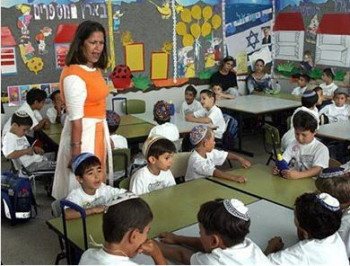
Admission to a master's program in Israel
Before an international student begins studying for a master's degree, there is a long admission process. It includes filling out various documents, passing tests (TOEFL, GRE), letters of recommendation, motivation letter and more. How does this work for a master's degree in Israel? Continuation of the first article about master's programs in Israel.
Admission
In order for a foreign student
to be enrolled in a master’s program, you actually need to submit approximately the same package of documents that is required for a master’s program, for example, in the USA, which is extremely convenient if, say, you want to enroll here and there. It is usually said that all documents are equally important, but I will list them in order of decreasing importance, from my point of view. So this is:
- Statement of Purpose
Motivation letter. In my opinion, the most important component of the entire package of documents. In no more than two pages, you must convince the admissions committee why you are suitable for your chosen specialty and why they should enroll you over all applicants. The motivation letter reveals the individuality of the future master's student, which sets him apart from the general pool of applicants and which should attract professors from the admissions committee. There is a lot of supporting literature to help you write this letter. Typically, applicants indicate the reasons why they want to enroll in a master's program and how the study will help them achieve certain goals in the future. It would also be a good idea to give the letter to a native speaker (an American, for example) to proofread after writing. It will help you correct mistakes, redo any phrases and lexical expressions, so that your letter is pleasant to read. - Letters of Recommendation
Two letters of recommendation in which other people evaluate you: why you are suitable for your particular specialty, what your strengths and weaknesses are, how well you can work in a team, etc. There is no need to be afraid of criticism in these letters; it is quite appropriate here, but it must be objective. One of the letters must definitely be from the professor. I sent 3 letters of recommendation: one from my supervisor, with whom I wrote my first degree thesis; the second - from the head of my department, and the third - from the director of the company where I worked. Typically, Russian professors do not like to write letters of recommendation on their own, as is required, so I wrote them myself and gave them to them for approval. Then he translated them into English, and they signed them. Each letter must be sealed in a separate envelope, the seal of which must bear the signature of the recommender and the seal of the faculty. - TOEFL
Test of English as a Foreign Language. International English language test. It is a mandatory test for international students. The minimum passing score is low: 80 according to TOEFL internet-based (iBT). - GRE
General Record Examinations. International test for admission to master's or graduate school.
Not
is compulsory for the Master's program at the Technion. The test itself consists of three parts:- Verbal - the part for testing English knowledge - is quite difficult for foreign students; but there is a list of about 800 words that are regularly used in each test. If you know it by heart, it will help a lot when passing.
Quantitative – the part where mathematics knowledge is tested; The part is not at all difficult, approximately the level of school mathematics of the 10th, 11th grade.
- Analytical Writing – the part where you need to write something to answer two questions; This part is not very difficult if you prepare well for it.
- Official Transcript
Official translation of the diploma. Everyone does it differently, so I will describe how I did it. Since I applied for a master’s program while still a first-degree student, I translated my grade book. I came to the international department of my university (at that time it was still the Ural State Technical University - UPI), where they made a translation for me. I need it in two copies, which were signed by the Vice-Rector for International Relations. The average diploma score should also be calculated and indicated in your point system (5-point). All universities have transfer scales, so you don’t need to transfer yourself. My GPA was 4.62. In the first years there were also C grades, because they taught something unclear. In the last 3 years I have come to my senses - all the sessions were excellent, which increased my average score. - Curriculum Vitae
(CV) Ordinary resume. Everything is as usual: education, work experience, skills. You can specify the names of publications. - Application
Standard application form for master's studies. Indicate the degree for which you are applying, faculty, specialty, personal data, information about your previous place of study or work. - Application Fee $100
Each university charges an application fee. In my opinion, $100 is quite a lot of money compared to other universities. But the main problem is that for some reason the Technion does not accept payments by credit card, but exclusively by international checks. - Scholarship Application
Application form for scholarships while studying. The scholarship here is not paid exactly the same as in Russia. It consists of portions: from 1 to 6. Each portion of the scholarship consists in turn of two parts. One part goes towards paying the tuition fees, the other part goes into your bank account for monthly expenses. Each scholarship portion represents approximately 25% of the tuition fee. Thus, if your scholarship consists of three portions, then the university pays 75% of the tuition fee for you, and only 25% remains for you. Plus, 2,436 shekels are credited to your account every month, which is approximately $650. - Dormitories Application Application
form for moving into a dormitory. They are all different, there are many buildings, so I will describe where I live. Our dormitory building is a 4-story building with two duplex apartments. 6 people live in the apartment: 3 people on the first floor and 3 on the second. One person per room. There is a shower and toilet on each floor. One kitchen and a spacious living room. The room is small, but quite enough for one person. Every room has air conditioning - you can't survive without it in the summer. And one more thing that is difficult to survive without is the Internet. The speed is about three megabits. The fee for living in a dormitory is about 850 shekels per month (about 225 dollars), including Internet and utility costs. - 2 photos
There is a lot of study material that can help you prepare for the test. If you enroll in a technical specialty, you need to focus more on the Quantitative part and try to get a high score. If you scored low in the Verbal section, you shouldn’t worry too much. It happens that Americans themselves, for example, do this part poorly.
So, after you have prepared all the documents, we seal them in an envelope, your signature on the glue and the seal of the faculty. In January-February, we receive a response about enrollment, we buy a one-way ticket and calmly enter the country of Israel on a tourist visa. It is not necessary to apply for a student visa while in the Russian Federation. It can already be obtained in Israel. A small digression regarding visas. A student visa only gives you the right to study. If you want to go home during the holidays, for example, or somewhere else, then you cannot
. To enter, you also need to obtain an Entry visa, which allows you to safely leave the country and return as often as you like. In the last part of the article, I will write about studying in a master’s program: how lectures, practices, language issues go, about choosing a supervisor and what knowledge is really necessary for a painless study in a master’s program in Israel.
Repatriates
There is special education in Israel for repatriates - Jews who returned to their homeland. They have the right to financial assistance from the state, easier exams and simplified training. Repatriates also take additional classes in Hebrew or subjects related to this language. Classes are often organized for them to help children adapt.
For high school students, there are special Naale schools in Israel, where education is free, and the state also funds accommodation and food for repatriates. These are three-year schools available to teenagers who have already completed 9th or 10th grade. The main goal is to obtain a matriculation certificate, which is what the curriculum with an intensive Hebrew course is designed for, as well as familiarization with Jewish national values. The student is free to choose subjects depending on his preferences and inclinations.
Entry requirements for Russian students
Russian citizens can also enroll in an Israeli university. (The exception is medical professions.) To do this, you must complete a year-long SELA training program. Those interested, as in the case of the NAALE teenage program, must be at least a little Jewish and have a high school diploma. In addition to the psychometric test, they take exams in English, logic, and mathematics. Arriving in Israel, young people study Hebrew for the first five months (28 hours a week), then they are prepared to enter a university.
While studying, room and board are paid, and 250 shekels (approximately $40) are given each month for pocket expenses. Successful graduates of the SELA program must decide whether or not to take Israeli citizenship. If the answer is positive, they fall under the repatriation assistance program - the state lends them part of the money for settling in and studying. After the SELA program, young people must study for another year in college or at the preparatory department of a university (the so-called mekhina).
Schools with Russian language of instruction
Russian schools are quite well represented in Israel; they begin to study at the age of 4, despite paid education (it is cheap and accessible to everyone). Anyone can sign up there, but it’s good if the student knows how to speak basic Russian. As a rule, children of new repatriates study in such schools. In addition to the Russian language and literature, these schools teach mathematics, music, and delight children with educational games.
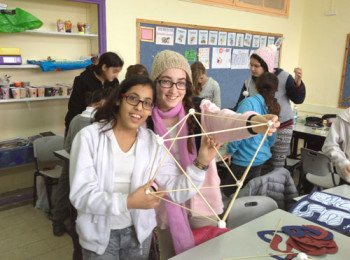
Features of the Israeli educational system
Israeli law requires all children from 5 to 17 years of age to attend educational institutions.
As in many other countries, three-level education is adopted in Israel:
- preschool;
- average;
- higher.
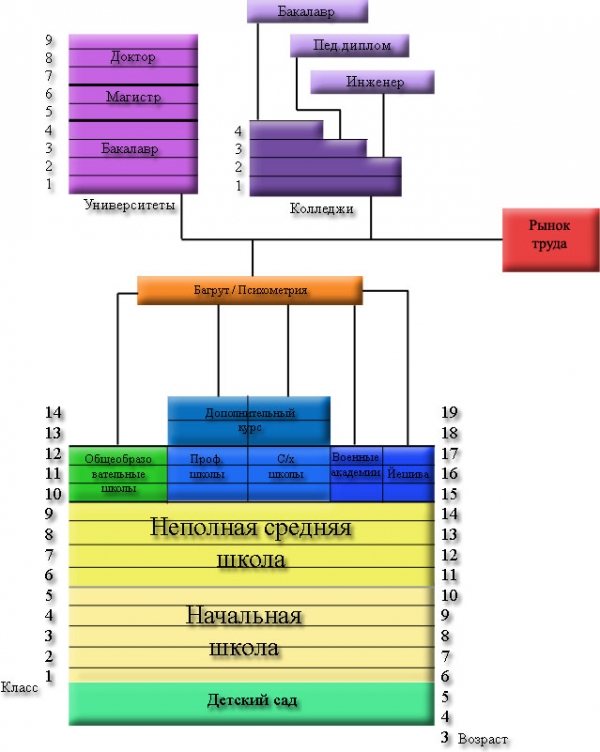
The educational process in Israel consists of several stages
Preschool education
In Israel, maternity leaves are very short, so children enter kindergartens as early as six months of age. Two types of institutions accept such young pupils:
- manger (maon);
- family kindergartens (moshpakhton).
Nurseries can be either public or private. They are usually located in separate buildings with their own area, equipped for children to play and walk around. The nursery is open from 7.00 to 16.00. During this time, children are fed three times and put to bed once.
Any woman can organize a family kindergarten at home; all she needs to do is undergo special training. They differ from nurseries in the small number of children. It is prohibited to accept more than 5 people into a family garden.
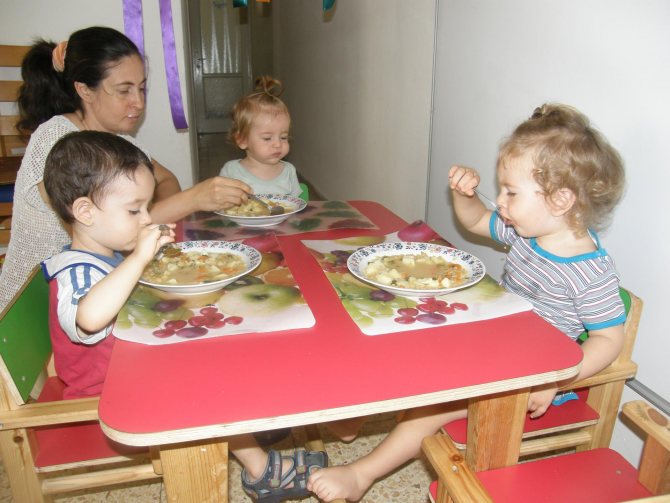
A woman who organizes a family kindergarten performs all the functions of a teacher
The cost of visiting a kindergarten for a child under three years of age does not depend on the type of kindergarten itself and is about 1,500 shekels (≈27,200 rubles). Repatriates and parents with low incomes receive significant discounts on preschool fees.
In Israeli preschool institutions, it is not customary to force children to do anything. Educators do not strive to potty train a child or force him to give up a pacifier as early as possible.
At three years old, children move to municipal kindergartens (gan trom-khova). They work until one o'clock in the afternoon and cost no more than 600 shekels, with repatriates paying only 10% of the price. In municipal kindergartens, children are not fed or put to bed. For an additional fee, you can leave your child in an extended day group.
For children of single mothers, there is a network of kindergartens organized by charitable communities. They take care of children all day and are much cheaper.
Classes in the preparatory group of kindergarten (gan-khova) are free and compulsory for everyone. During them, children are introduced to the basics of reading, writing and counting.
Secondary education
All schools in Israel are divided into three types:
- state (training is conducted in accordance with the plan approved by the Ministry of Education);
- state-religious (with in-depth study of Judaic and religious studies);
- private (teaching according to the program established by the school board);
- Arabic (they teach Palestinian children in their native language).
Most children attend public schools.
There are many private Russian schools in Israel. They accept children from the age of four. Education in such schools costs money, but their fees are available to all categories of Israeli residents.
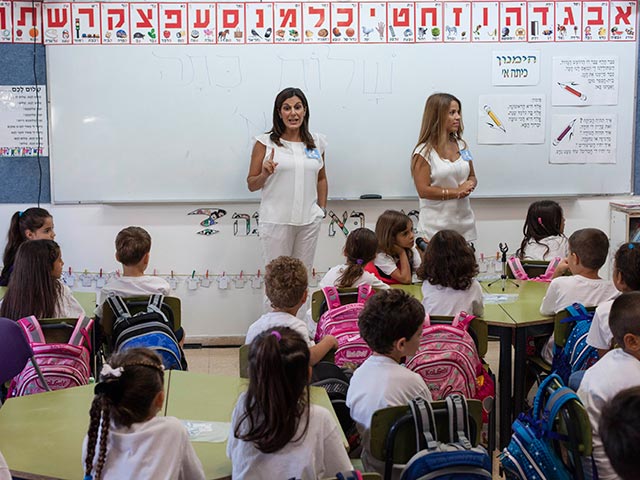
Teachers seek an individual approach to each child
Secondary education is provided free of charge to all citizens of the country. Money is charged only for textbooks and additional classes. In addition, once a year, students travel to different cities of the country lasting from several hours to 2-3 days, which are also paid for by their parents. The cost per student is approximately NIS 1,000 per year. Single-parent and large families are paid a special allowance that compensates for these expenses.
The academic year in Israeli schools begins on September 1 and ends at the end of June. All holidays (except summer) coincide with state religious holidays.
Particular attention is paid to the education of disabled children. Depending on the severity of the disease, they may receive education in special or regular schools. Children with special needs receive all the necessary assistance both during their studies and during employment.
School education in Israel consists of three levels:
- primary (from first to sixth grade);
- incomplete secondary or intermediate (from seventh to ninth grade);
- secondary (from tenth to twelfth grade).
Each level is a separate school, with its own team of teachers and building.
Primary school (beit sefer yesodi)
Children begin studying in primary school at the age of 6 and finish at 12. First-graders attend 31 lessons per week, where they study the following compulsory subjects:
- Hebrew (reading, writing and speech development);
- English language;
- mathematics;
- natural history;
- music;
- art (a mixture of drawing and labor);
- Traffic Laws.
In the fourth grade, children begin to be taught all the basic school disciplines, including TANAKH (the Holy Scriptures of the Jews) and computer literacy.
In Israeli elementary schools, children are not given homework or grades.
In third grade, students take an exam, which takes place in two stages. A child who successfully passes all tests is transferred to an educational institution for gifted children. If there is no such school nearby, then groups of talented students are formed, who study according to a special program once a week. In addition, they can attend additional classes in selected disciplines for free.
Intermediate school (hativat beynaim)
In these schools, Israeli teenagers study from 12 to 15 years of age. At the intermediate level, the following are added to the compulsory disciplines:
- story;
- geography;
- natural science;
- civil law;
- second foreign language.
The school council, which includes parents, teachers and the principal, may include additional subjects in the curriculum. When choosing them, the opinions of students are also taken into account.
In intermediate schools, students' knowledge is assessed using a 100-point system.
During some lessons, children are divided into several groups with different levels of performance. This allows the teacher to teach subjects at different levels of difficulty.
Upper secondary schools (xativa elona)
Even in the eighth grade of the previous level, students choose secondary schools in which they will continue their education. Enrollment in them occurs on the basis of a competition of school certificates. The most prestigious educational institutions conduct entrance exams.
Complete secondary schools are divided into several types:
- General education. They teach basic school subjects. Depending on the desired profession, high school students can choose the humanities or natural sciences.
- Professional. In such schools, teenagers not only study general education subjects, but also receive work skills. Some educational institutions have additional classes that prepare junior engineers.
- Agricultural boarding schools. They combine school subjects with disciplines that introduce students to the basics of agronomists.
- Military boarding schools. They train career officers and technical workers for the Israel Defense Forces.
- Religious (Yeshivas). Single-sex schools that focus on Torah study and other Judaic subjects. Their graduates can work as specialists in observing kosher food technologies in cafes and restaurants or as Torah scribes. These professions are in high demand in the Jewish community and are very well paid.
In the eleventh and twelfth grade, students of all types of schools can take state exams, based on the results of which a matriculation certificate is issued. To obtain it, you must pass tests in various disciplines, which must include the following subjects:
- Hebrew;
- TANAKH;
- mathematics;
- civil law;
- English language;
- literature.
The exact number of exams depends on the complexity of the disciplines chosen by the student.
Children who choose not to take the tests or fail to achieve the required score can take the tests at a later date.
For teenagers who do not attend secondary schools for some reason, evening educational institutions operate. Training there lasts 4 years, and during the last two years classes are held only 3 days a week, and the rest of the time is spent working on the chosen specialty. Evening schools that train hairdressers, cooks and computer graphics specialists are very popular.
Video: Russian-speaking teacher talks about the structure of Israeli school education
Higher education
The Israeli academic degree system almost completely copies the American one and includes 3 levels:
- Bachelor's degree - 3 years of study at a university or 4 years at a college;
- Master's degree - additional 2-3 years at the university;
- Doctoral studies - postgraduate study at a university lasting from 2 to 4 years and mandatory defense of a dissertation.
In order to enter Israeli universities, it is not enough to have a matriculation certificate. All applicants take a psychometric test, which is organized by specialists from the Israeli Center for Examinations and Statistics. It consists of 165 tasks aimed at testing:
- logical thinking in the native language (40% of questions);
- level of English language proficiency (20%);
- mathematical abilities (40%).
This exam is conducted not only in Hebrew, but also in English, Arabic, Russian, French, Spanish.
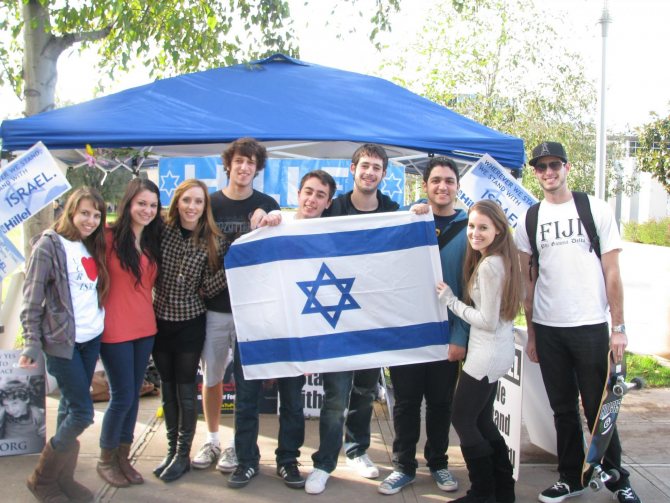
Tens of thousands of students in Israel will begin their studies in the fall
As a result of passing the test, a future student can score from 200 to 800 points. A score above 400 points is positive.
Test results are valid for 7 years. The psychometric exam can be retaken every 6 months. When entering a university, the highest grade is taken into account, regardless of the time it was received.
Video: psychometric test in Israel
https://youtube.com/watch?v=boc4TLaSrmY
To obtain higher education in some specialties, Israeli applicants have to undergo additional tests. Thus, you can become a student of engineering and technical faculties only after successfully passing the exam in physics and mathematics.
Tuition fees apply at all universities in Israel. For citizens of the country, its average amount is approximately 10,000 shekels per year (≈180,000 rubles). Low-income students can get a loan with a low interest rate. There is a special support program for repatriates, thanks to which they receive higher education for free.
Many young Israelis sign contracts with the army. Under their terms, students receive a bachelor's degree for free, and in return work for several years in military positions.
Higher education
Three-level higher education in Israel is slightly different from the usual Russian system:
- Bachelor's degree – 3 years at universities. Colleges in Israel provide 4 years of education;
- Master's degree lasts 2 or 3 years;
- doctoral studies An analogue of Russian graduate school. The period of study depends on the university. It takes from 2 to 4 years to prepare and defend a doctoral thesis.
Israeli colleges are designed for mastering technical specialties, and many students go there to gain practical knowledge and then apply it in practice. In this country they have a more prestigious status than in Russia.
Now in Israel you can enroll in one of nine universities, each of which has its own characteristics. For example, the Hebrew University, located in Jerusalem, is considered the oldest and oldest prestigious university in the country. Both humanists and representatives of technical specialties can feel comfortable here. Tel Aviv University is more focused on economic and social sciences. It is also known for engineering students, as is the Technion in Haifa, home to Google's research centers.

Everything you wanted to know about studying in Israel
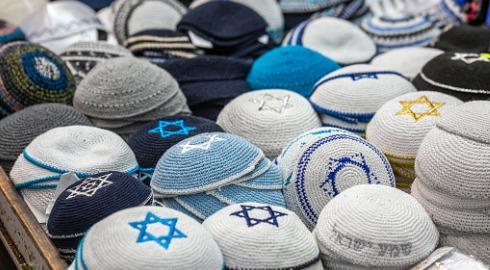
Although Israel is a small country with only nine universities, Israeli education offers international students high-quality and highly varied education.
Israeli universities offer a variety of subjects to study, from engineering, medicine and law to history, humanities and the arts. You can study in Israel not only in Hebrew, but also in English. Some universities also offer programs in Russian and Arabic.
In addition, Israel is an interesting and comfortable country to live in, which welcomes foreign students and has a large Russian-speaking community.
How to enter an Israeli university?
Foreign students at Israeli universities can receive a bachelor's degree (3-4.5 years depending on the specialty), master's degree (1-2 years) or doctorate.
A foreign student who has reached the age of 18 can enroll in a bachelor's program at one of the Israeli universities.
It is not possible to submit entrance documents to Israel after finishing 11th grade in Russia due to the difference in the education systems of the two countries. For further admission to an Israeli bachelor's degree, a school graduate must:
- study 1 year at one of the universities in Russia or another country
- take a preparatory training course
Training courses
The preparation course for entering Israeli universities is called “mekhina” and lasts, on average, 11 months. Students of the course are distributed in three directions: exact sciences, natural sciences and humanities, depending on their future specialization at the university. As part of the course, students study English, the basics of Hebrew, mathematics, statistics, history and a number of other specialized subjects. The estimated cost of the course is about $10,000. You can take the course at universities in Israel or outside the country, for example, at the Israeli Cultural Center .
Foreign students can also learn Hebrew from scratch in special language courses called “ulpan” and offered by the Israeli Ministry of Education and Culture. These courses take place in Israel, at universities and in special training centers, last 5-6 months and cost about $1,400-1,600 per month.
Submission of admission documents
In Israel, there is no centralized system for submitting entrance documents to universities. Each educational institution independently regulates the student enrollment process. On average, universities begin accepting documents for undergraduate studies six months or a year before the start of classes. You can submit documents directly to the university or through its official representatives abroad. More detailed information about submitting documents can be found on the website of each educational institution.
To enroll in undergraduate studies at Israeli universities, an international student, in most cases, must fill out an online admission form and attach the following documents to it:
- copy of passport
- photo format 3x4 cm
- copy of the certificate of complete secondary education
- two letters of recommendation
- student resume (as required by the university)
- motivational essay (average 300-500 words)
- IELTS or TOEFL certificate (for English-language programs)
- psychometric test results (at the request of the university)
- results of a medical examination (at the request of the university)
Please note that all official documents submitted by the student must be translated into Hebrew or English and notarized.
Psychometric testing and medical records
As you may have noticed, in the list of documents that Israeli universities usually require from incoming foreigners, there are two rather unusual items - the results of psychometric testing and the results of a medical examination.
The Psychometric Entrance Exam is a standardized entrance test for admission to universities in Israel. The exam is administered by the Israel Examinations and Assessment Center (IEEC) and can be taken in Hebrew, Russian, Arabic, French or Spanish. There is also a combined exam in Hebrew and English with explanations in seven languages, including Russian. The exam is held in Russian twice a year, in Hebrew and English - five times a year.
The psychotest lasts about 2 hours 40 minutes and consists of 8 parts to test verbal thinking, quantitative thinking and the level of the English language. Exam parts include multiple choice questions and essay writing. When passing the exam, a student can score from 200 to 800 points. A month after passing the test, the results are sent to the student and/or to the Israeli university he is enrolling in. Along with school performance, the results of psychometric testing are the most important criterion for the selection of foreign students into many universities in Israel.
Often, universities also require that international students undergo a medical examination before admission and present the results to the admissions committee. Medical forms that must be completed and sent to the university can be found using the example of Tel Aviv University here and here .
Review of documents by the admissions committees of Israeli universities usually takes, on average, from several weeks to two to three months. After receiving confirmation of enrollment from the host university, an international student can apply for a student visa to Israel.
Cost of studying at universities in Israel
Higher education at Israeli universities is paid. However, foreign students pay on average 25% more for their studies than Israeli students.
The cost of education in Israel depends on the chosen university, curriculum and specialization. On average, the cost of studying at Israeli universities for foreigners starts from $8,000 per year .
Best Israeli Universities for Foreigners
As we have already noted, there are only nine higher education institutions in Israel. Six of them are included in the QS World University Rankings 2020
.
Below we will tell you about the three main and most popular Israeli universities...
Hebrew University of Jerusalem, Jerusalem
Hebrew University, founded in 1925, is the second oldest university in Israel, as well as the country's largest scientific and educational center. In addition, it is the only Israeli university in the top 200 best educational institutions in the world. The university consists of several campuses, includes a number of research centers and extensive libraries, boasts the best teachers from around the world and graduates, including Nobel laureates. The university is especially popular for studying mathematics, computer science, business and economics. Teaching at the university is conducted primarily in Hebrew.
Tel Aviv University, Tel Aviv
Tel Aviv University educates more than 30,000 students and is a huge research institution in the heart of Tel Aviv, the economic and cultural center of Israel. The university is multidisciplinary and includes 9 faculties, 17 teaching hospitals, 18 art centers, 27 schools, 340 research centers and 400 laboratories. Students come here primarily to study arts, humanities, engineering, technology, medicine, natural sciences, social sciences and management. In addition to the high quality of education, the university is also known for its wide selection of English-language study programs.
Technion (Israel Institute of Technology), Haifa
As its name suggests, the Technion specializes in higher technical education. Today the university is the leading technical educational institution in Israel and one of the most respected engineering schools in the world. In Hebrew and English at the Technion you can study aerospace engineering, architecture and urban planning, biomedical engineering, biotechnology, civil engineering, chemical engineering, computer science, mathematics, mechanics, medicine, nanotechnology, energy and much more. In addition, the Technion is known for its extensive international collaborations, for example with Cornell University, and provides students with the opportunity to participate in international exchange programs.
Study at the 10 oldest universities in the world
Alternative universities to Oxford, Cambridge, Harvard and MIT
Harvard and Other Universities You Should Follow on Instagram
Admission to university
To become a student at any university, you need a certificate confirming completion of high school, knowledge of Hebrew, English and passing a psychometric test. It tests your ability to think logically and mathematically, as well as your ability to speak English. For exact or natural sciences, a mathematics exam is taken, and there may also be additional tests in specialized disciplines. An interview or writing of creative works is possible, which is more relevant to humanitarian specialties. The cost of studying in Israel varies from 2.5 to 3 thousand dollars per year, regardless of the university and faculty, this does not take into account the costs of housing, office, etc.
Universities in Israel
Hebrew University
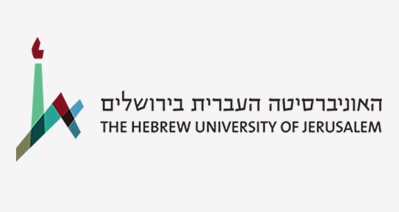
The university located in Jerusalem is the best educational institution in Israel and the largest scientific center in the country. The Hebrew University has faculties covering all scientific fields, the best among which are the teaching of mathematics, economics and the humanities. The annual number of applicants is more than 20,000.
Technion
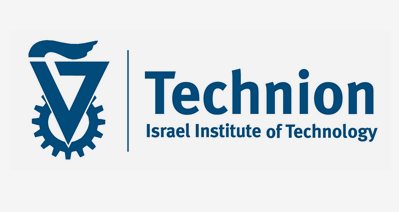
In 1925, the Israel Technical Institute was opened in Haifa. The main specializations of the university are civil engineering, exact and technical sciences. Each year, the university awards the Harvey Prize to students who have achieved outstanding achievements in medical, science or humanities research. At the beginning of the academic year, more than 13,000 applicants enter the Technion faculties.
Institute named after Weizmann
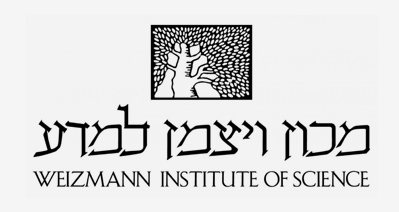
The only university in Israel that accepts students with a bachelor's degree. The Weizmann Institute specializes in the study of mathematics, physics, chemistry, biology and brain research. Every year, about 1,000 qualified specialists graduate from the university.
Israeli citizens pay 50% of the cost provided for foreigners for studying at universities. The rest is compensated by the state. Repatriates have the right to receive additional financial assistance for training. The amount of required payment for education depends on the university and its location. On average, for foreigners, studying at Israeli universities costs $7,000 per year. Master's programs cost between $3,800 and $14,800 per year.
Accommodation in a student dormitory will cost approximately $500 per month. Apartment rent costs up to $750 per month. Repatriates receive benefits for living expenses from the Ministry of Construction. About $600 per month will be required for transportation and gastronomic expenses. Mandatory fees include security payments, insurance and Student Union registration fees of nearly $2,000 per year.
Education for Russians in Israel
For Russians, studying in Israel at the faculty of any of the nine universities is quite possible; they only need to complete a one-year training course called “SELA”. Future students are taught Hebrew and the necessary disciplines for studying at the university. Exams required for admission:
- Hebrew;
- English;
- mathematics;
- logics;
- passing a psychometric test.
Please note that medical education in Israel is not available to foreigners.
Education for Russians, as for any foreigners, is paid. However, they do not feel completely abroad there, since 40% of teachers at any university speak Russian, and many subjects are taught in it not only in universities, but sometimes also in preparatory courses. And this happens despite the fact that the national languages of Israel are Hebrew and Arabic.
Cost of studying in Israel
Perhaps the only unpleasant moment in obtaining higher education in Israel is the cost of training. According to many research publications, tuition fees in Israel are higher than in any European country except the UK.
On average, a bachelor's program will cost a local student 2,200 euros per year, and a master's program will cost 2,800 euros. Foreigners need to set themselves up to an amount of 10,000 and 12,000 euros per year, respectively.
In addition, rent, food and other related expenses in Israel are very expensive for a student. The cost of living even in university dormitories reaches 2-5 thousand euros per year, not to mention private rental housing.
Here, depending on the conditions and location, prices start from 800 euros per month. Plus intensive Hebrew courses cost about 2 thousand euros.
There is a government scholarship program for talented foreign students in Israel in 2021. In case of excellent academic performance and a bachelor's degree, you can receive a scholarship that fully or partially covers intensive Hebrew courses, one year of study at an Israeli university and health insurance.
Diploma confirmation
This is the first step towards finding a job, but should not be confused with obtaining a permit. Confirmation of a diploma in Israel is done by the Ministry of Education. The procedure takes approximately three to four weeks, after which you can receive a certificate of academic degree and confirmation of diploma, which is previously notarized along with the insert.
The education system in Israel is optimal for those who want to get a decent job after graduation and at the same time gain comprehensive knowledge in many disciplines. It is also an excellent way to immerse yourself in the thousand-year history of the country, its laws and customs, and learn the Holy Scriptures. Receiving a higher education in Israel is an honor for any person; both the exact sciences and the humanities are valued in the state.
Prestigious Universities
The most prestigious universities in Israel are the Hebrew University of Jerusalem, the Technion-Israel Polytechnic Institute, Tel Aviv University, the University of Haifa, the Ben-Gurion University of the Negev and the Open University of Israel. Each of them has not only purely professional specifics (for example, it is better to study as an engineer at the Technion), but also its own special flavor.
Hebrew University is a whole city, picturesquely spread out on the slopes of Jerusalem. The university is the oldest in the country (founded in 1918), and the university building was built relatively recently - in 1967. In terms of status, the Hebrew University can be compared with our Moscow State University. It is believed that proximity to holy places puts young people in a serious mood and helps them concentrate on their studies - Jerusalem really has little to do with idle fun.
Studying at Ben-Gurion University will cost you less, because it is located very much in the south of the country, in the Negev Desert. There is relatively cheap housing there, which ultimately attracts many newcomers to Israel.
The Open University in Tel Aviv is the most affordable university. It is accepted without exams. Education is part-time, so you can get it without interrupting your job. Higher education in Israel also differs from Russia in that diplomas there are recognized throughout the world.
Secondary education
Israeli secondary education is divided into 3 levels:
- grades 1–6 (from 6 to 12 years old) - junior school;
- grades 7–9 (from 12 to 15 years old) - secondary school;
- Grades 10–12 (from 15 to 18 years old) - high school.
The academic year begins on September 1, as in Russia. Ends for junior classes on June 30, for seniors - June 20. Even though the summer holidays are not very long, Israeli children have time to relax throughout the year. The holidays coincide with religious holidays: Sukkot (children do not study for a week), Hanukkah (again for a week), Passover (3 weeks).
Types of schools
There are several types of schools in Israel:
- State. These schools adhere to the program of the Israeli Ministry of Education. Just over 70% of children study there (free). Parents only need to buy textbooks, notebooks, and sports uniforms.
- State religious. Here education is based on the Ministry of Education program, but there is a stronger emphasis on the study of religious subjects. Studying is free.
- Orthodox religious. The teaching program in such schools differs greatly from that recommended by the Ministry. The main focus is on religious subjects, but there are also general education subjects: mathematics, English, etc.
- Schools of arts, science, technology. These are institutions with a strong focus on developing the creative and research abilities of students. Training is partially paid.
- Private schools. They adhere to the programs of the Ministry of Education, but practice innovative teaching methods.
Prices for education in private schools are very different and depend on the level and degree of equipment of the institution. Children are automatically enrolled in primary school at their place of residence. It is almost impossible to change anything here. You can change schools only after completing the 6th grade. Many parents take advantage of this - they place their children in a stronger educational institution.
Teaching level
Teaching in Israeli schools is very gentle and loyal. Until the 6th grade, practically nothing is required of children. Teachers communicate with them as equals. Everyone says “you” to each other, there is no arrogance or dictatorship of elders. There is no strict discipline. Children behave freely in the classroom. In class they chat, walk from desk to desk.
Such freedom and a rather weak academic load plays a cruel joke on children when it comes time to move on to high school and prepare to receive a matriculation certificate. This is where the real “race” begins. Many teenagers dream of passing exams brilliantly and joining the army. They think about university only after serving.
